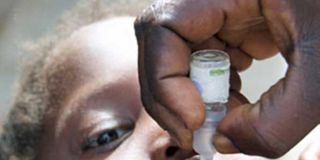TZ fares well on infant immunisation

What you need to know:
Even so, new findings show that over 95 per cent of infants in the country have received life-saving vaccines.
Dar es Salaam. Cases of unvaccinated children in remote and nomadic communities in Tanzania leave a lot to be desired in the country’s immunisation success story.
Even so, new findings show that over 95 per cent of infants in the country have received life-saving vaccines.
On Monday, there was a sigh of relief for Tanzania as the World Health Organisation (WHO) and UNICEF released statistics showing that nearly one in 10 infants globally did not receive any vaccines in 2016.
Tanzania has fared well in Africa, and globally, according to Dr Bhavin Jani, a Surveillance Officer for Vaccine and Preventable Diseases at the WHO country’s office.
However, Dr Jani was quick to warn saying: “The high national coverage rates should not deceive you. There are pockets of unvaccinated children in underserved areas and in nomadic communities in the country.” Data shows that in East Africa, Tanzania recorded 97per cent of coverage--coming behind Rwanda that attained 99 per cent followed by Burundi at 95 per cent.
Kenya sat fourth at 81 per cent while Uganda lags behind in the region having recorded 78 per cent only.
Dr Jani told The Citizen that the WHO has been making efforts to support the country in strengthening immunisation programmes such as cold chain expansion.
This, he said, includes, advising on strategic actions to reach the unreached children, advocacy on promoting access and utilisation of immunisation services. Besides, Tanzania has been a beneficiary of the Global Alliance for Vaccines and Immunisation (GAVI), and this, coupled with a political commitment, have helped the country make a huge stride in immunisation over the past five years, added Dr Jani.
The WHO and Unicef have called for more investment in immunisation globally. The data released on Monday shows that in 2016, eight countries had less than 50 per cent coverage with DTP3 vaccines, including Central African Republic, Chad, Equatorial Guinea, Nigeria, Somalia, South Sudan, Syria and Ukraine. According to the new data, 130 of the 194 WHO member states have achieved and sustained at least 90 per cent coverage for DTP3 at the national level – one of the targets set out in the Global Vaccine Action Plan.
This, according to the findings, most infants missed the first dose of diphtheria-tetanus-pertussis (DTP)-containing vaccine, putting them at serious risk of potentially fatal diseases.
“Most of the children who remain un-immunised are the same ones missed by health systems,” said Dr Jean-Marie Okwo-Bele, Director of Immunisation, Vaccines and Biologicals at WHO in a WHO-UNICEF joint statement.
Yet, an estimated 6.6 million infants who received their first dose of DTP-containing vaccine did not complete the full three dose DTP immunisation series (DTP3) in 2016, says the report.
Experts say immunisation currently prevents between 2 to 3 million deaths every year, from diphtheria, tetanus, whooping cough and measles. It is one of the most successful and cost-effective public health interventions.
“Immunisation is one of the most pro-equity interventions around,” said Dr Robin Nandy, Chief of Immunisations at UNICEF. “Bringing life-saving vaccines to the poorest communities, women and children must be considered a top priority in all contexts,’’ he added.




